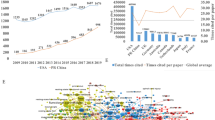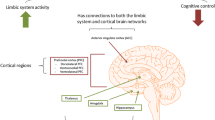Abstract
Depression is often preceded by exposure to stressful life events. Chronic stress causes perturbations in the immune system, and up-regulates production of proinflammatory cytokines, which has been proposed to be associated with the pathogenesis of clinical depression. However, the potential mechanisms by which stress-induced proinflammatory cytokines lead to the development of depression are not well understood. Here, we sought to screen the main proinflammatory cytokines and the potential mechanisms linking inflammation to depression-like behavior during unpredictable, chronic, mild stress (UCMS), in vivo. Mice were allocated into four groups in each separate experiment: saline-control, saline-UCMS, drug-control and drug-UCMS. Development of depression-like behavior was reflected as a reduction in sucrose preference, and increased immobility in both the forced swim and tail suspension tests. The following drugs were administered intraperitoneally: the pan-anti-inflammatory tetracycline derivative, minocycline (30 mg/kg, daily), the tumor necrosis factor (TNF)α monoclonal antibody, infliximab (10 mg/kg, twice weekly), and the indoleamine 2, 3-dioxygenase (IDO) inhibitor, 1-methyltryptophan (1-MT, 10 mg/mouse, daily). Plasma TNFα, IL-1β and IL-18 increased significantly after the four-week UCMS exposure. Pretreatment of mice with minocycline completely blocked any upregulation. Concurrent with development of depression-like behaviors, the concentration of TNFα in plasma and the cerebral cortex increased remarkably. The tryptophan-degrading enzyme IDO was up-regulated in the cortex following UCMS exposure. Treatment of mice with minocycline, infliximab or 1-MT prevented the development of depression-like behaviors. Furthermore, blockade of TNFα inhibited expression of IDO and protected cortical neurons from UCMS-induced damage. These results suggest that TNFα plays a critical role in mediating UCMS-induced depression through up-regulation of IDO and subsequent damage of cortical neurons.
Similar content being viewed by others
References
Machado M, Iskedjian M, Ruiz I, Einarson TR. Remission, dropouts, and adverse drug reaction rates in major depressive disorder:a meta-analysis of head-to-head trials. Curr Med Res Opin 2006; 22: 1825–37.
Souery D, Papakostas GI, Trivedi MH. Treatment-resistant depression. J Clin Psychiatry 2006; 67(Suppl 6): 16–22.
Smith RS. The macrophage theory of depression. Med Hypotheses 1991; 35: 298–306.
Maes M. Evidence for an immune response in major depression:a reviewand hypothesis. Prog Neuropsychopharmacol Biol Psychiatry 1995; 19: 11–38.
Adler UC, Marques AH, Calil HM. Inflammatory aspects of depression. Inflamm Allergy Drug Targets 2008; 7: 19–23.
Raison CL, Capuron L, Miller AH. Cytokines sing the blues:inflammation and the pathogenesis of depression. Trends Immunol 2006; 27: 24–31.
Das UN. Is depression a low-grade systemic inflammatory condition? Am J Clin Nutr 2007; 85: 1665–6 [author reply 1666].
Raedler TJ. Inflammatory mechanisms in major depressive disorder. Curr Opin Psychiatry 2011; 24: 519–25.
Tynan RJ, Weidenhofer J, Hinwood M, Cairns MJ, Day TA, Walker FR. A comparative examination of the anti-inflammatory effects of SSRI and SNRI antidepressants on LPS stimulated microglia. Brain Behav Immun 2012; 26: 469–79.
Kemeny ME, Schedlowski M. Understanding the interaction between psychosocial stress and immune-related diseases:a stepwise progression. Brain Behav Immun 2007; 21: 1009–18.
Steptoe A, Hamer M, Chida Y. The effects of acute psychological stress on circulating inflammatory factors in humans:a review and meta-analysis. Brain Behav Immun 2007; 21: 901–12.
Maes M, Song C, Lin A, et al. The effects of psychological stress on humans:increased production of pro-inflammatory cytokines and a Th1-like response in stress-induced anxiety. Cytokine 1998; 10: 313–8.
Miller GE, Chen E, Sze J, et al. A functional genomic fingerprint of chronic stress in humans:blunted glucocorticoid and increased NF-kappaB signaling. Biol Psychiatry 2008; 64: 266–72.
Goshen I, Kreisel T, Ben-Menachem-Zidon O, et al. Brain interleukin-1 mediates chronic stress-induced depression in mice via adrenocortical activation and hippocampal neurogenesis suppression. Mol Psychiatry 2008; 13: 717–28.
Mikova O, Yakimova R, Bosmans E, Kenis G, Maes M. Increased serum tumor necrosis factor alpha concentrations in major depression and multiple sclerosis. Eur Neuropsychopharmacol 2001; 11: 203–8.
Dowlati Y, Herrmann N, Swardfager W, et al. A meta-analysis of cytokines in major depression. Biol Psychiatry 2010; 67: 446–57.
Tyring S, Gottlieb A, Papp K, et al. Etanercept and clinical outcomes, fatigue, and depression in psoriasis:double-blind placebo-controlled randomised phase III trial. Lancet 2006; 367: 29–35.
Bassukas ID, Hyphantis T, Gamvroulia C, Gaitanis G, Mavreas V. Infliximab for patients with plaque psoriasis and severe psychiatric comorbidity. J Eur Acad Dermatol Venereol 2008; 22: 257–8.
Leonard B, Maes M. Mechanistic explanations how cell-mediated immune activation, inflammation and oxidative and nitrosative stress pathways and their sequels and concomitants play a role in the pathophysiology of unipolar depression. Neurosci Biobehav Rev 2012; 36: 764–85.
Capuron L, Ravaud A, Neveu PJ, Miller AH, Maes M, Dantzer R. Association between decreased serum tryptophan concentrations and depressive symptoms in cancer patients undergoing cytokine therapy. Mol Psychiatry 2002; 7: 468–73.
O’Connor JC, André C, Wang Y, et al. Interferon-gamma and tumor necrosis factor-alpha mediate the upregulation of indoleamine 2,3- dioxygenase and the induction of depressive-like behavior in mice in response to bacillus Calmette-Guerin. J Neurosci 2009; 29: 4200–9.
Bonaccorso S, Marino V, Puzella A, et al. Increased depressive ratings in patients with hepatitis C receiving interferon-alpha-based immunotherapy are related to interferon-alpha-induced changes in the serotonergic system. J Clin Psychopharmacol 2002; 22: 86–90.
Bonaccorso S, Marino V, Puzella A, et al. Interferon-gammadependent/ independent expression of indoleamine 2,3-dioxygenase. Studies with interferon-gamma-knockout mice. Adv Exp Med Biol 1999; 467: 553–7.
Popov A, Abdullah Z, Wickenhauser C, et al. Indoleamine 2,3-dioxygenase-expressing dendritic cells form suppurative granulomas following Listeria monocytogenes infection. J Clin Invest 2006; 116: 3160–70.
Fujigaki S, Saito K, Sekikawa K, et al. Lipopolysaccharide induction of indoleamine 2,3-dioxygenase is mediated dominantly by an IFNgamma- independent mechanism. Eur J Immunol 2001; 31: 2313–8.
Peng YL, Liu YN, Liu L, Wang X, Jiang CL, Wang YX. Inducible nitric oxide synthase is involved in the modulation of depressive behaviors induced by unpredictable chronic mild stress. J Neuroinflammation 2012; 9: 75.
Xiong W, MacTaggart J, Knispel R, Worth J, Persidsky Y, Baxter BT. Blocking TNF-alpha attenuates aneurysm formation in a murine model. J Immunol 2009; 183: 2741–6.
Hou W, Li S, Wu Y, Du X, Yuan F. Inhibition of indoleamine 2, 3- dioxygenase-mediated tryptophan catabolism accelerates crescentic glomerulonephritis. Clin Exp Immunol 2009; 156: 363–72.
Padi SS, Kulkarni SK. Minocycline prevents the development of neuropathic pain, but not acute pain:possible anti-inflammatory and antioxidant mechanisms. Eur J Pharmacol 2008; 601: 79–87.
Karson A, Demirtas¸ T, Bayramgürler D, Balci F, Utkan T. Chronic administration of infliximab (TNF-alpha inhibitor) decreases depression and anxiety-like behaviour in rat model of chronic mild stress. Basic Clin Pharmacol Toxicol 2013; 112: 335–40.
Bourin M, Chenu F, Ripoll N, David DJ. A proposal of decision tree to screen putative antidepressants using forced swim and tail suspension tests. Behav Brain Res 2005; 164: 266–9.
Datta SC, Opp MR. Lipopolysaccharide-induced increases in cytokines in discrete mouse brain regions are detectable using Luminex xMAP technology. J Neurosci Methods 2008; 175: 119–24.
Granger JI, Ratti PL, Datta SC, Raymond RM, Opp MR. Sepsisinduced morbidity in mice:effects on body temperature, body weight, cage activity, social behavior and cytokines in brain. Psychoneuroendocrinology 2013; 38: 1047–57.
Krabbe KS, Reichenberg A, Yirmiya R, Smed A, Pedersen BK, Bruunsgaard H. Low-dose endotoxemia and human neuropsychological functions. Brain Behav Immun 2005; 19: 453–60.
Kubera M, Obuchowicz E, Goehler L, Brzeszcz J, Maes M. In animal models, psychosocial stress-induced (neuro)inflammation, apoptosis and reduced neurogenesis are associated to the onset of depression. Prog Neuropsychopharmacol Biol Psychiatry 2011; 35: 744–59.
Aronson AL. Pharmacotherapeutics of the newer tetracyclines. J Am Vet Med Assoc 1980; 176(10 Spec No): 1061–8.
Huang CY, Chen YL, Li AH, Lu JC, Wang HL. Minocycline, a microglial inhibitor, blocks spinal CCL2-induced heat hyperalgesia and augmentation of glutamatergic transmission in substantia gelatinosa neurons. J Neuroinflammation 2014; 11: 7.
Du Y, Ma Z, Lin S, et al. Minocycline prevents nigrostriatal dopaminergic neurodegeneration in the MPTP model of Parkinson’s disease. Proc Natl Acad Sci USA 2001; 98: 14669–74.
Zhu S, Stavrovskaya IG, Drozda M, et al. Minocycline inhibits cytochrome c release and delays progression of amyotrophic lateral sclerosis in mice. Nature 2002; 417: 74–8.
Wang CX, Shuaib A. Involvement of inflammatory cytokines in central nervous system injury. Prog Neurobiol 2002; 67: 161–72.
McAfoose J, Baune BT. Evidence for a cytokine model of cognitive function. Neurosci Biobehav Rev 2009; 33: 355–66.
Zhao C, Ling Z, Newman MB, Bhatia A, Carvey PM. TNF-alpha knockout and minocycline treatment attenuates blood-brain barrier leakage in MPTP-treated mice. Neurobiol Dis 2007; 26: 36–46.
Raison CL, Borisov AS, Woolwine BJ, Massung B, Vogt G, Miller AH. Interferon-alpha effects on diurnal hypothalamic-pituitaryadrenal axis activity:relationship with proinflammatory cytokines and behavior. Mol Psychiatry 2010; 15: 535–47.
Maes M1, Meltzer HY, Scharpé S, et al. Relationships between lower plasma L-tryptophan levels and immune-inflammatory variables in depression. Psychiatry Res 1993; 49: 151–65.
Couch Y, Anthony DC, Dolgov O, et al. Microglial activation, increased TNF and SERT expression in the prefrontal cortex define stress-altered behaviour in mice susceptible to anhedonia. Brain Behav Immun 2013; 29: 136–46.
Lanquillon S, Krieg JC, Bening-Abu-Shach U, Vedder H. Cytokine production and treatment response in major depressive disorder. Neuropsychopharmacology 2000; 22: 370–9.
Sluzewska A, Sobieska M, Rybakowski JK. Changes in acute-phase proteins during lithium potentiation of antidepressants in refractory depression. Neuropsychobiology 1997; 35: 123–7.
Author information
Authors and Affiliations
Corresponding authors
About this article
Cite this article
Liu, YN., Peng, YL., Liu, L. et al. TNFα mediates stress-induced depression by upregulating indoleamine 2,3-dioxygenase in a mouse model of unpredictable chronic mild stress. Eur Cytokine Netw 26, 15–25 (2015). https://doi.org/10.1684/ecn.2015.0362
Published:
Issue Date:
DOI: https://doi.org/10.1684/ecn.2015.0362




